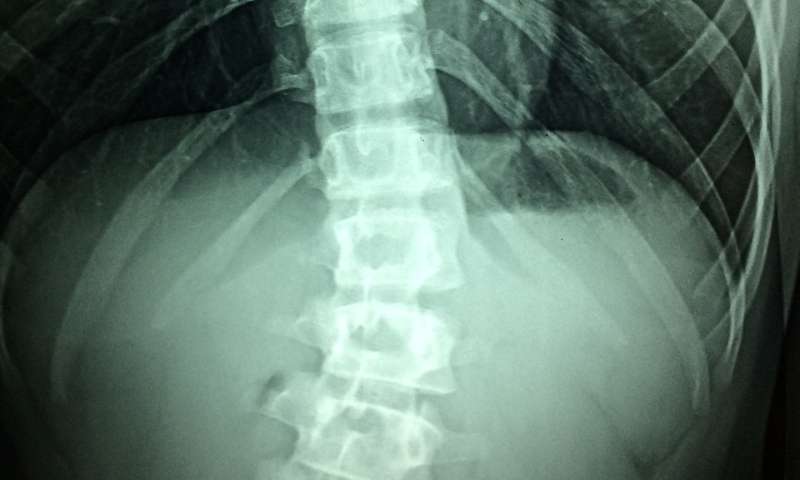Credit: CC0 Public Domain
Researchers have designed a new way to grow nose cells in the lab heralding hope for sufferers of spinal cord injuries, including those who are wheelchair bound.
Griffith University's Mr Mo Chen grew nose nerve cells in the lab, which can treat mice with spinal cord injuries.
"My colleagues placed the nerve cells into mice that were suffering from spinal cord injuries," says Mr Chen. "The mice quickly recovered and could walk again, but we're still working on improving the therapy".
One of the difficulties of this kind of research is growing cells effectively in the laboratory.
"Our bodies are 3-D not 2-D so the best way of growing cells in the lab, is 3-D," says Mr Chen. "With our method we can grow healthier 3-D cultures in a shorter time."
Researchers at Griffith University have developed a system using "naked liquid marbles" where cells can grow in an environment that simulates the body.
Nerve cells in the nose are regularly exposed to trauma making them very robust.
"These nasal cells heal better than many other nerve cells which makes them ideal to treat damaged spinal cords," says Mr Chen.
Researchers used cells supporting the 'olfactory' nerve cells, which create our sense of smell.
"We found that growing olfactory cells on the naked liquid marbles worked particularly well and we can grow very large 3-D spheres of cells with a diameter up to 3 mm.
"These spheres of cells can self- assemble into tissues. These tissues are very strong so can be handled and transplanted easily into spinal injury sites".
While the results have been positive for mice, spinal cord injuries in humans are more complex. But this research paves the way for clinical trials anticipated to begin in 2020, using nasal cells from spinal cord injury sufferers and giving hope to many that they may walk again.
More information: Mo Chen et al. The serrulatane diterpenoid natural products RAD288 and RAD289 stimulate properties of olfactory ensheathing cells useful for neural repair therapies, Scientific Reports (2018). DOI: 10.1038/s41598-018-28551-2
Journal information: Scientific Reports
Provided by Science in Public























